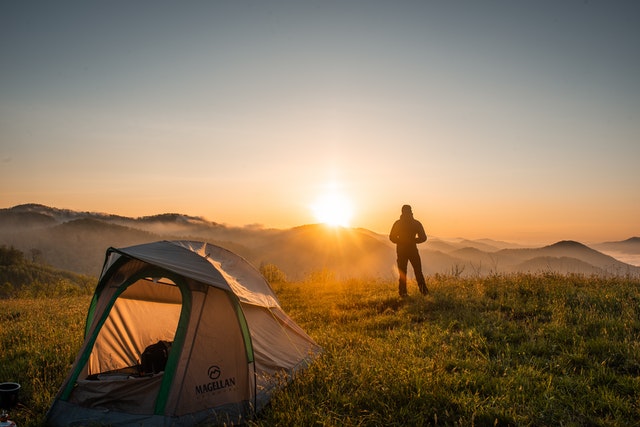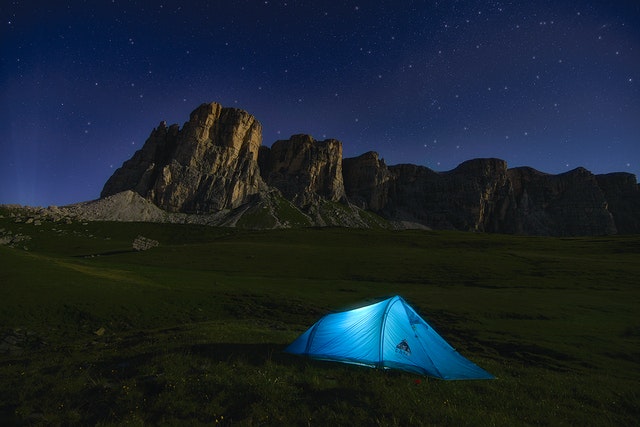
If you’ve ever had to buy a tent, then you know what I’m talking about. There are many different brands, features, and styles to choose from. The worst part is that some of them have similar prices! So how do you decide which one is right for you? In this article, I’ll address some common concerns when purchasing a tent and help walk you through the process so that it makes more sense next time.
Price
- Pricing is the most crucial consideration for many consumers, and good reason.
- If you want a quality tent at an affordable price, the Coleman Instant Tent 6-Person is an excellent choice.
- Of course, your budget will dictate what type of tent you can afford.
Brand
You might think, “What kind of a question is that?” But the truth is that your brand preferences reflect who you are and what matters to you. Your personality, morals, and values-all contribute to your choice of tent brands.
For example, suppose you’re looking for a big name brand like Coleman or Eureka for camping purposes (and let’s be honest—who isn’t?). In that case, it’s likely because their reputation has been built upon quality products over the years. These companies produce durable tents with high-quality materials that last longer than cheaper models from lesser-known manufacturers. The downside? They’ll also cost more than cheaper models from lesser-known manufacturers (though not always).
But if the price point is more important than the brand name in your search for a new tent, don’t fret! There are plenty of affordable options that still provide excellent value without sacrificing durability or quality craftsmanship. And while we’re on the subject: don’t forget about third-party retailers such as Amazon, where you can often find great deals on well-made products at even lower prices than what’s usually available through traditional outlets such as retail stores or specialty websites – so check those out too!
Seasons
- Seasons. The season you plan to use your tent in will largely determine the type of tent you buy. If you plan to camp in the hot summer months, a lightweight and simple model that doesn’t require much pitching skill is ideal. In contrast, an appropriate four-season tent should be considered if you plan on winter camping or car-camping at a high altitude during colder periods.
- Rainfall and snowfall. Suppose your area gets a lot of rain or snow (or both). Waterproofing will be essential for functionality and comfort: heavy precipitation can make for cold nights when combined with breathable fabrics.
- Sun exposure (in the form of UV radiation). Choose between mesh walls that allow air circulation but let in UV rays or solid barriers that block UV radiation but trap heat inside.
Features
Features are important! They’re the bells and whistles that make a tent more than just a shelter to sleep in; they’re what help you get the most out of your camping experience. If you’re looking for a tent that’s easy to set up, consider one with an easy-to-use clip system. If you want a tent that can accommodate your gear, look for one with multiple pockets and storage areas.
The best features will differ depending on who is using them—but there are some universal preferences among campers. For example, people who like comfort when they sleep may prefer an air mattress or cot over sleeping on the ground; those who don’t mind roughing it might enjoy sleeping directly on dirt without any padding between them and nature.
Size
- Size: You want a tent that’s big enough for your family and small enough to fit in your car.
- Gear: The tent you choose will also have to accommodate all of the equipment you need to bring with you. We’ll discuss this below, but keep it in mind when deciding!
What matters most to you is what you’ll have the most difficulty finding.
You’ve probably got a few features in mind, but you’ll have to weigh them against the price point. If your primary consideration is price, then you’ll want to stick with the most affordable options—but if your primary concern is quality and durability, you might invest in something more expensive.
And how about seasons? Are you planning on using your tent during winter camping or summer trips? Do you want it for hiking, backpacking or car camping? That can affect what kind of material your tent is made from (and thus its weight) and how much protection it offers from rain/snow/ice/wind. In addition to being practical considerations for the type of trip, you plan on taking, these factors may also play into the size and shape of your tent.
The truth is: there’s no one best tent out there. Different types appeal more strongly depending on what matters most to each person looking at their options!
– Best Tents for a Backyard Camping Experience
Conclusion
We hope that this post helped help you find your perfect tent! If you have more questions about tents, don’t hesitate to ask in the comments. And remember, if all else fails: go with what feels right.
